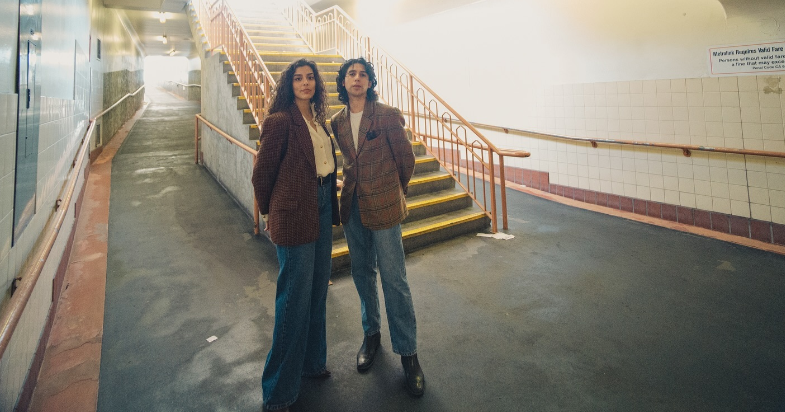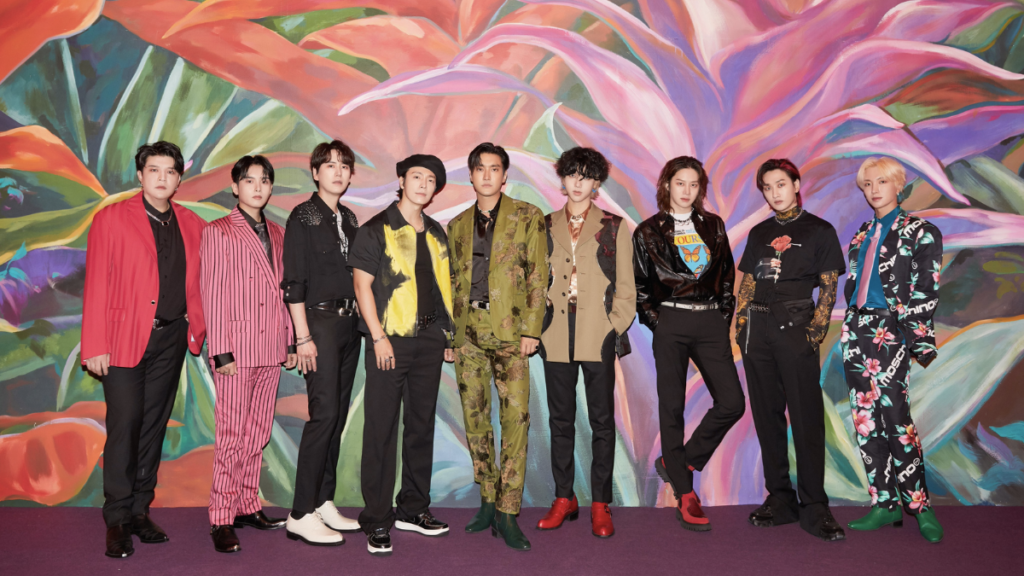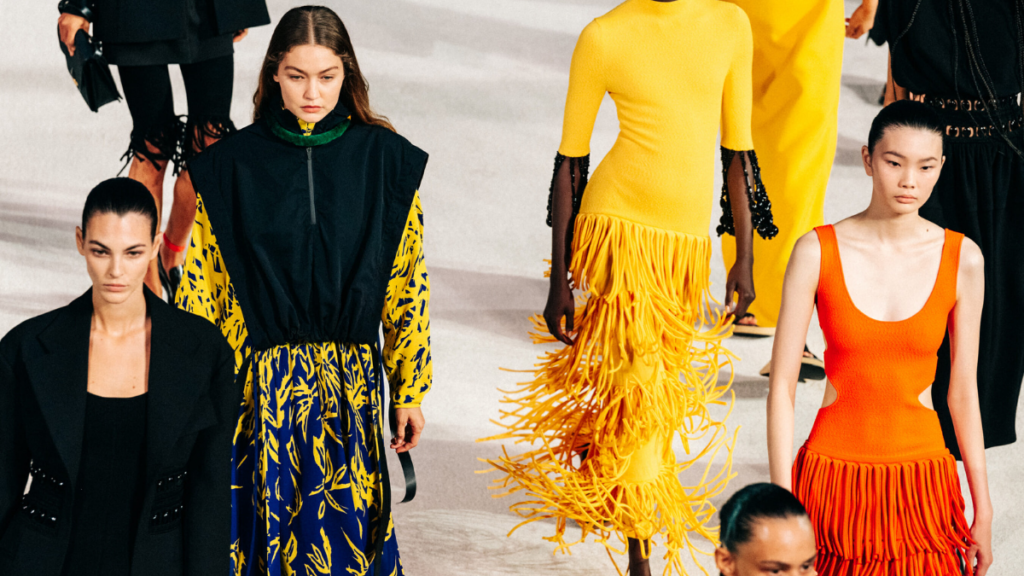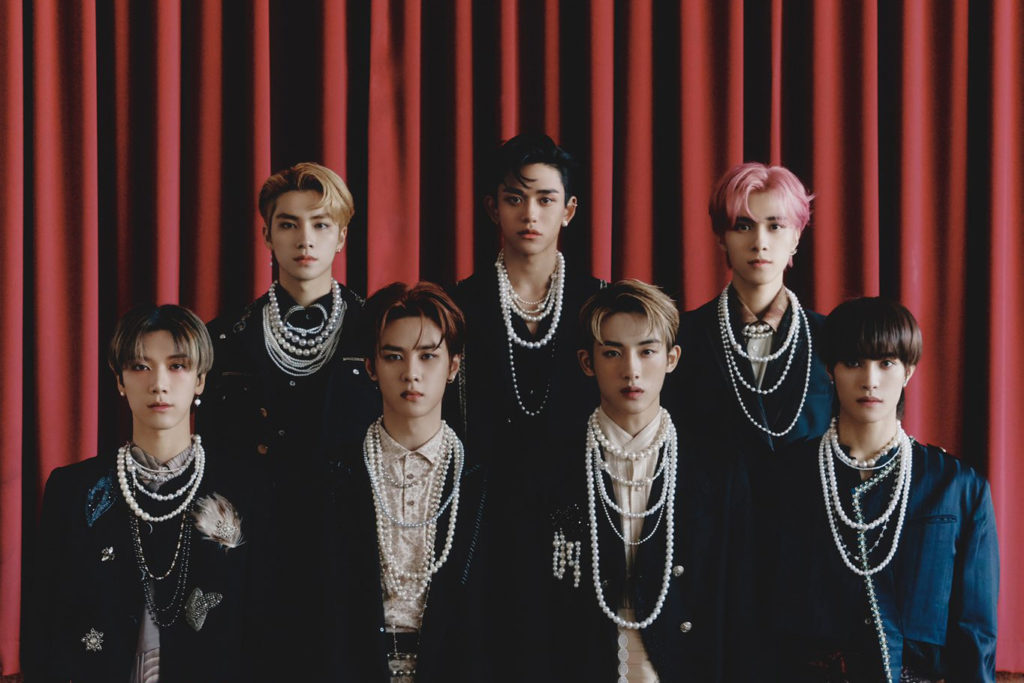Juanpalitoschinos Bring Back the ‘80s With Their Album, “Natsukashii”

Juanpalitoschinos, a Mexican indie duo, make music inspired by Japanese city pop of the ‘80s. Their music is a unique cultural fusion, bridging a retro Japanese genre into Latin America by singing in Spanish. They initially gained attention online in 2020 with the release of their single, “Lo que tú me das.” On May 30th, they released their debut album, Natsukashii, which roughly translates to “nostalgic” or “happy nostalgia.”
In the works since 2021, Nastukashii brings a sense of wistfulness with lyrics that contrast their upbeat songs. Expressing nostalgia spans beyond their sound. Through the lyrics, members Friné and JP take on the roles of partners navigating romance and heartbreak. Composed of 12 tracks, the album is perfect for hopeless romantics and late night drives.
“Siente el ritmo”
First in the lineup, “Siente el ritmo” sets the tone for the rest of the album. As the duo sings, “Y ahora ya no encuentro / Cómo acercarme más a ti,” they wonder how to progress in a relationship. (“And now I can’t figure out / How to get closer to you anymore.”) The song’s title tells you to feel the rhythm, and its groovy beat makes you want to let loose. Doing so is referenced in the lyrics, “Ya no puedo más, en mis sueños ya estamos bailando / Toma mi mano.” (“I can’t hold back anymore, in my dreams we’re already dancing / Take my hand.”) While the duo invites listeners to dance along, dancing is also used as a metaphor. Here, accepting an outstretched hand to dance is a call to fall in love. So, give in to the rhythm and dance!
“¿Por Qué No Contestas?”
Opening with an automated message in Japanese, the song sets up its storyline on a missed phone call. The music video shows Friné and JP running around on a late night adventure, filmed with vintage 8mm camera visuals. Switching between long distance and closeups, the framing of each shot reveals the lovers’ strained relationship. From a distance, the pair seem happy, skipping through crowds and dancing freely in the streets. However, the distance is also shared between the couple themselves. The question, “Why won’t you answer?” refers to the countless missed calls, but also the dismissive nature of a partner. Unlike the previous track, the couple has lost their initial connection. In the outro, there’s still a desire to fix the relationship, “No quiero que se pase más tiempo / Te quiero pero no es el momento.” (“I don’t want any more time to pass / I love you but it’s not the right moment.”) Even so, this relationship must come to an end.
“Estoy muy bien,” and You?
“Estoy muy bien” follows the events of the breakup from the previous track. Regaining your confidence post-breakup is difficult, but Juanpalitoschinos does so with flair. They’ve changed, and are embracing it fully. Achieving a disco sound with mixed percussion and a modulated guitar, the album shifts to a carefree tone. Rather than feeling hung up any longer, the duo brush off attempts to reconnect over coffee. “Porque tal vez no me equivoqué / Y estoy muy bien / ¡Y que! Ya no necesito tus caricias,” they sing. (“Because maybe I wasn’t mistaken / And I’m doing well / And! I don’t need your affections anymore.”) There’s no need to pretend that they miss what used to be. Regardless of how the ex is doing, the sun is shining once again, bringing new joys.
Once Upon a Time, “Cuando me amabas”
Despite being fully enveloped in an upbeat ‘80s synthwave sound, “Cuando me amabas” addresses a new complex development: longing. Following a breakup, the song dwells on the time of a loving relationship. Sung in the style of a call and response, the lyrics mimic a conversation between ex-lovers. JP opens with regrets of not valuing the relationship while it lasted. He goes on to sing, “Tú me hiciste sentir el amor / Ahora pierdo la razón si tú no estás.” (“You made me feel love / I lose all reason if you’re not here.”) During the chorus, the duo sings in unison, acknowledging that they haven’t been the same since their romance ended. The pair admits to missing each other’s presence, even with all their changes. In the second verse, Friné responds, “Tú me hiciste sentir el amor / Ahora no cabe más dolor cuando tú estás.” (“You made me feel love / Now there’s no room for hurt when you’re here.”) She can’t find herself pursuing the relationship again. For this couple, it seems to be the right person, but wrong timing.
“Tú,” Just Because It’s You
Bass riffs, trumpet fanfare, and groovy guitar emphasize the playful nature of this track. Confessing self-love is lackluster in comparison to true love, the lyrics speak of falling in love. While they know they should not give in, they can’t resist the pull of romance. Their reasoning? Simple: “Es que eres ¡tú! / Sin ti no hay más, me pierdo si tú ya no estás.” (“It’s because it’s you! / Without you there is nothing else, I become lost if you’re not here.”) Juanpalitoschinos would do anything just for that special someone, simply because they are themselves. Falling in love is so powerful, it can even make them forget their own suffering. “Tú,” is a song dedicated to lovers who can find comfort in each other.
“Bellavista 130”
Initially released as their debut song in 2020, this track serves as an interlude for the album. Shifting away from the lively mood thus far, “Bellavista 130” has a softer instrumental. Tender lyrics convey a couple’s innocent love for each other. Something as plain as waking up to kisses makes coffee taste sweeter and life better. Simple intimacies are further expressed in the chorus, “Te quiero ver y no puedo ser / Sin tocar tu piel ni tus besos.” (“I want to see you, I can’t exist / Without touching your skin or receiving your kisses.”) Every moment spent together is precious. There’s no need to rush, or as the lyrics say, “Te quiero en mi tiempo / Y solo te quiero amar, sentir.” (“I want you in my own time / I only want to love, and feel.”)
“Me Hago Mal”
When you picture personifying your emotions, do you picture them following you in fuzzy suits? Juanpalitoschinos does. In the music video, JP plays the role of “anxiety” in a fuzzy yellow suit, while Friné is “euphoria,” in a matching pink suit. The two coexist with the video’s main character, Aimee, who is described simply as “sad artist.” While the antics of Friné and JP add humor to the video, the song deals with the topic of losing oneself. Stuck in a cycle of depression, the lyrics reveal, even waking up is difficult. Anxiety further fuels a sense of helplessness, “Me perdí yo ya no sé qué hacer / Para regresar una vez más.” (“I lost myself, and don’t know what to do / To go back once again.”) However, there is a glimmer of hope hidden underneath. “Debo regresar,” they sing as the song ends. (“I should return.”) There’s no glamorizing it: living with mental illness affects every part of one’s daily life. Amid their own experience, listeners can find solace and let their own worries go, even if for a moment.
“Diles,” Reveal the Truth
Transitioning back to a brighter sound, this track incorporates soothing elements of bossa nova. Using acoustic guitars and doubling the melody adds a romantic ambience. However, true to the Juanpalitoschinos style, the lyrics are serious as they plead for an ex-partner to tell the truth. While the ex paints a picture of a picturesque lost love to all who listen, the reality is not so. “No hubo un adiós ni un perdón / Y nos llevó la distancia,” the duo sings. (“There wasn’t a farewell nor even an apology / The distance got to us.”) Rather, the ex is reminiscing and romanticizing the relationship where they failed. They can claim they miss the relationship, but the truth is they have no memory of their former lover’s voice.
“Hacerte Bien”
What’s the best way to improve yourself? Juanpalitoschinos would say love, in all its forms. After a long struggle with past partners, “Hacerte Bien” reflects on a recent development. Embarking on a new relationship, they have found someone who makes them want to change for the better. “¿Cómo apartarme de lo que nunca me hirió? / No hay razón,” they ask. (“How can I separate from something that never wounded me? / There’s no reason to.”) Unlike previous experiences, this love is refreshing. Both partners reciprocate each other’s care, and become more sincere because of it. There’s a newfound desire to be the same support and source of joy this partner provides. The track offers a message of hope for those who have yet to find their other half yet.
Let’s communicate and “Work it out”
The group’s first song incorporating English, “Work it out” presents a lesson learned from the past. Previous relationship problems came from pushing each other away and refusing to talk. As established in “Hacerte Bien,” the duo want to build better foundations for their relationships. They alternate between English and Spanish throughout the song, adding a layer of depth to the song’s message. Where words may fail, actions speak clearly. Returning to a common motif, JP and Friné communicate through dance. With a push-and-pull relationship, the two are at their best in the freedom of the dance floor.
“Lo que tú me das”
“Lo que tú me das” was directly inspired by Mariya Takeuchi’s “Plastic Love,” and the sound of Mexican Pop artist Luis Miguel. Credited as the song that made the duo viral, it solidified their musical and creative direction. Over a dreamy keyboard and a smooth guitar backing track, the pair sings of a broken relationship. Though being together is unhealthy, the duo persists. “Bailo despacio y si no te llamo no pidas más / Nos hace daño / Te espero una vez más / Solo una más” (“I dance slowly and if I don’t call out to you, don’t ask for more / It hurts us / I’ll wait one more time / Only once more.”)
Let’s try again, “Una Vez Más”
Juanpalitoschinos circle back to the feeling of nostalgia, through thinking of an ex-lover. They can’t forget what their relationship used to be. There’s a sense of familiarity from their last relationship, they find themselves missing. Even with a thorny past, there’s a longing, “Quizás yo ya me acostumbré / A todos esos besos que me dabas.” (“Maybe I’ve become used to it / Of all those kisses you used to give me.”) Sounding out their last call, they want to try and revive their love one more time. Equipped with rose tinted glasses, the song is hopeful that they can move forward.
Natsukashii is available to stream on Apple Music, Spotify, and YouTube Music. Keep up with Juanpalitoschinos on Instagram, TikTok, and X.
Dara Gonzalez contributed translations for this piece.
Interested in discovering more artists like Juanpalitoschinos? Check out our Artist Spotlight with hongjoin, here!



